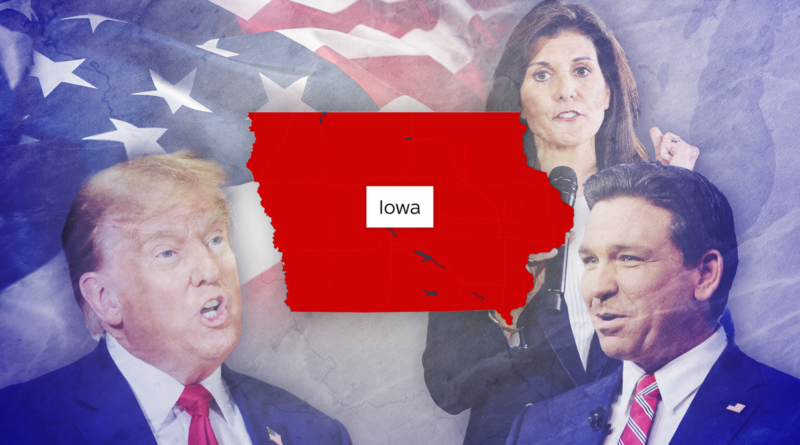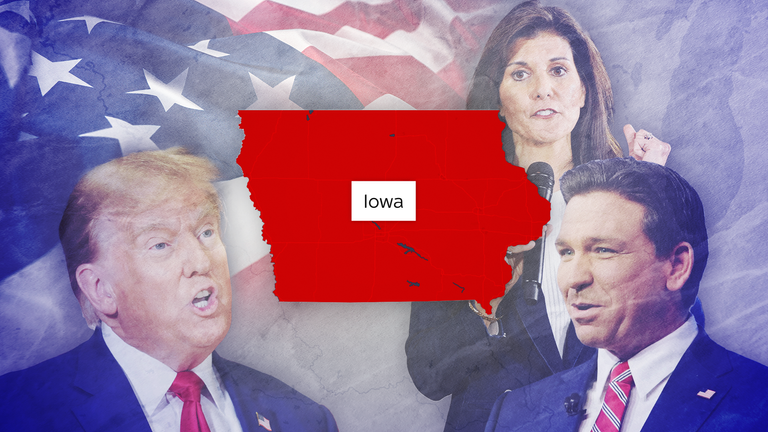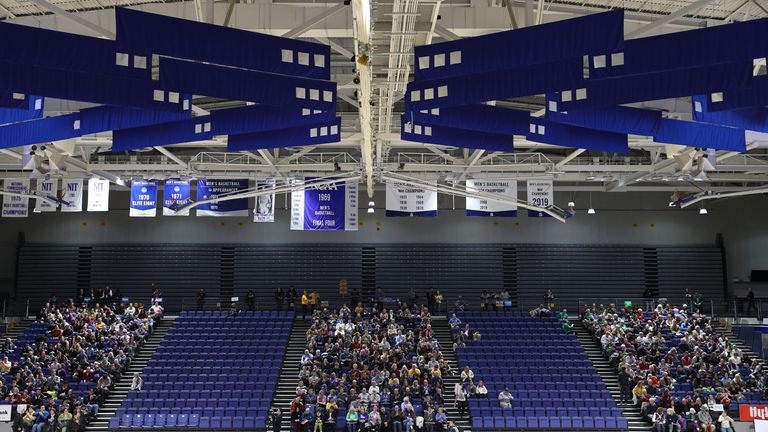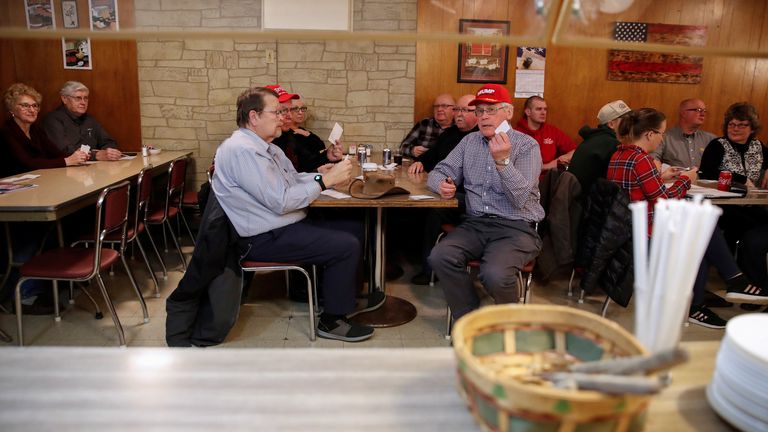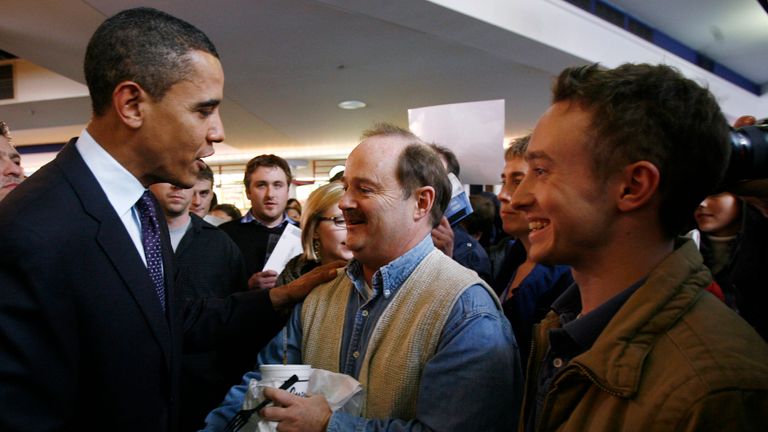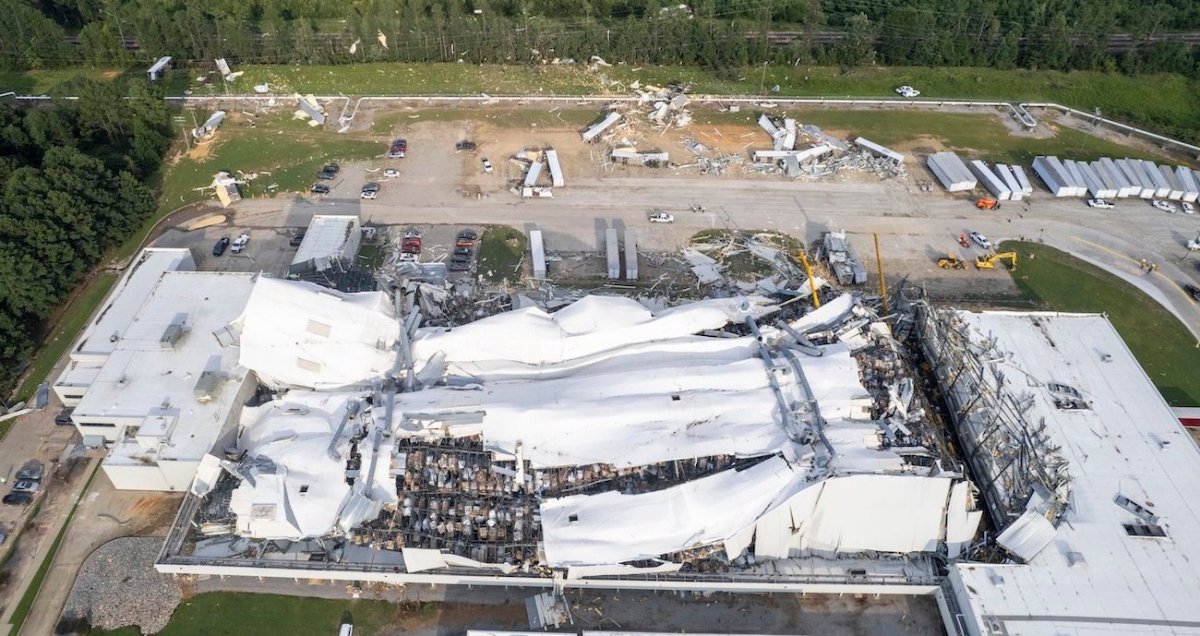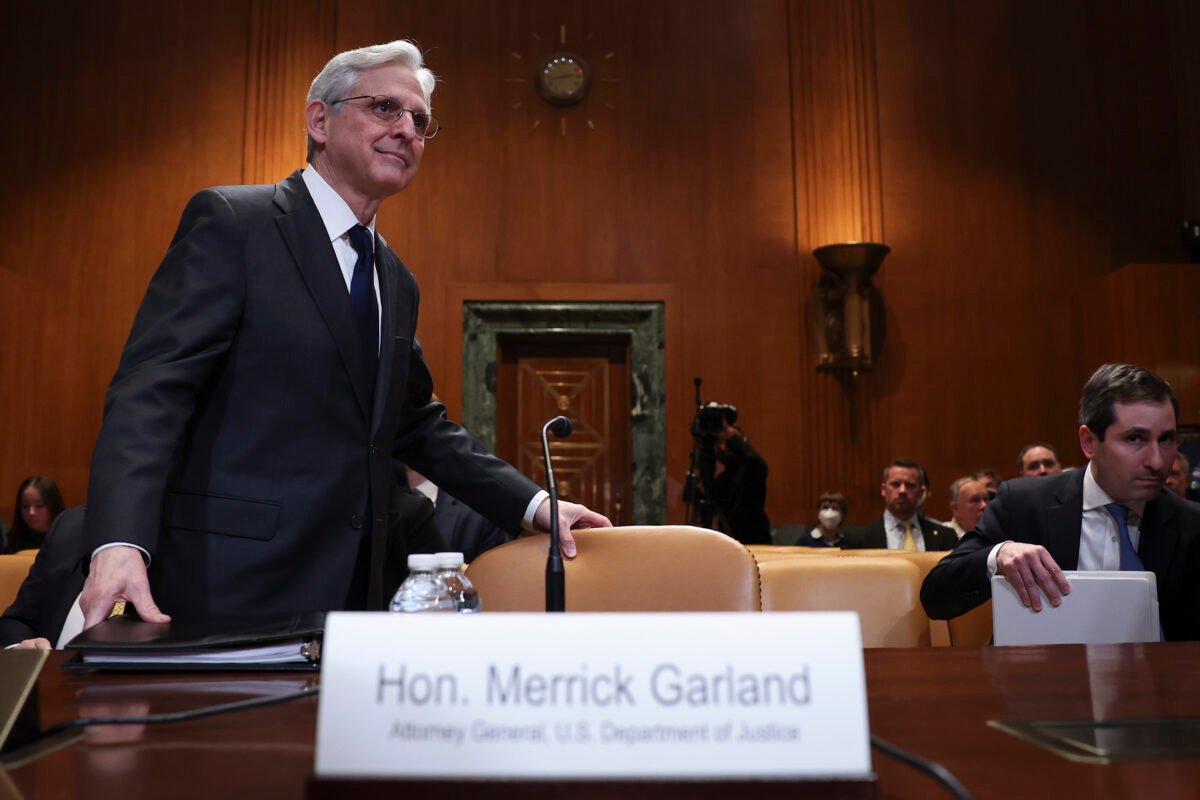Understanding the Significance of the First Iowa Caucus: What Are Caucuses and Why Do They Matter?
It may be still nine months away, but the race to the US presidential election has already begun in earnest.
The first step in deciding which candidate will get their party’s nomination begins in Iowa on Monday evening.
Since 1972, the midwestern state has been the first to hold its caucus – which has routinely acted as a litmus test for how candidates will fare later along the campaign trail.
But with the Democrats not voting at their Iowa event this year – and Donald Trump’s multiple brushes with the law, this year’s proceedings may not be straightforward.
Here we look at what happens in Iowa, what a caucus is, and whether the winners will be the ones to watch.
What is a caucus – and how does it work?
The road to a US presidential election is long, beginning almost exactly a year before the incumbent is inaugurated with a star-studded ceremony at the White House. It begins with primaries and caucuses – two ways Democrats and Republicans begin the process of nominating a candidate.
The vast majority of states hold primaries, but Iowa and some other, traditionally Republican states opt for caucuses instead.
Read more:
Who’s running to be the next US president?
All you need to know about Trump’s legal cases
Who is Republican candidate Vivek Ramaswamy
While primaries are like mini-elections, whereby party members can cast their vote at any point throughout the day, or sometimes by post, caucuses must be attended in person.
Primaries are run by the state whereas caucuses are organized by the parties themselves.
Caucuses take place at precinct, district, and state level in places such as schools, churches, and community centers.
Those who attend listen to speeches made on behalf of each potential candidate by their campaign representatives. Caucus-goers then vote for their preferred candidate and these are tallied in a matter of hours.
Primaries and caucuses can be open or closed, with the former allowing anyone to take part and the latter restricted to party-registered voters.
The outcome of the caucus or primary determines how many delegates each candidate gets to represent them at the party’s national convention in the summer.
At the convention, the candidate with the most delegates becomes the presidential nominee, but if there is no clear winner at primary or caucus level, the delegates vote again at the convention.
Why does Iowa go first?
Iowa has long been a traditionally Republican state, with its current governor, House representatives, and senators all belonging to the GOP. But from the 1950s, Democrats have had more of a presence there.
With the increasing influence of trade unions came calls for the state’s cities to get better political representation, more in line with rural areas.
Then after the Democratic National Convention of 1968, where protests over the Vietnam War resulted in a protester’s death and hundreds of injuries, Democrats in Iowa demanded reform of the state caucus system – to move power away from party bosses and more into the hands of grassroots activists.
This saw separate conventions created at state and district level, which elongated the caucus process and meant the whole thing had to start earlier.
As such, since 1972 Iowa has been what is commonly referred to as “first in the nation”.
Why has it become so important?
Iowa’s “first in the nation” status means it often acts as an initial performance indicator for nominee candidates.
“The results in Iowa sends a signal to the rest of the country on the tenor of each of the candidates and whether they really will have the chance of proceeding on,” Jim McCormick, emeritus professor of American politics and US foreign policy at Iowa State University, tells Sky News.
This was capitalized on in its first year, when South Dakota’s senator George McGovern realized Iowa would be first and made a particular effort there – with him going on to win the nomination for the Democrats.
Ahead of the next election in 1976, Jimmy Carter’s campaign team honed in on Iowa, which gained nationwide media coverage and ultimately helped propel him to the White House.
From then on, every US president since Carter, aside from Bill Clinton in 1992 and Joe Biden in 2020, has finished within the top three of the Iowa caucus.
Barack Obama often credits his win there with his election to the presidency in 2008.
But historically, coming first in the caucus has not guaranteed winning the party nomination, particularly among Republicans.
As such, there have only been three times when the winner of the Iowa caucus has gone on to win the Republican nomination.
Iowa has proportionately more white and elderly people than many other states, so despite efforts made by campaign teams, the result there can still turn out to be misleading.
Poor weather in January and the timing of the event can also lead to low turnout, with only 30% of registered Republicans taking part in 2016, the last time the race was competitive.
But Prof McCormick argues: “International observers have a tendency to look to New York, Washington DC, and Los Angeles to see what the US is all about.
“But Iowa is so-called ‘flyover country’, which is more reflective of the values of middle America. So even with its demography and relatively small ethnic minorities, the message that comes out of Iowa is consequential.”

